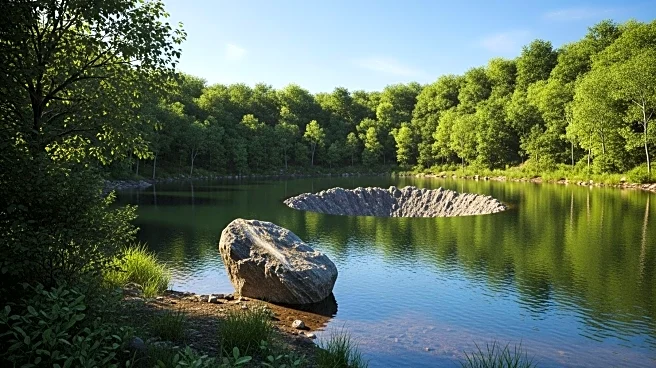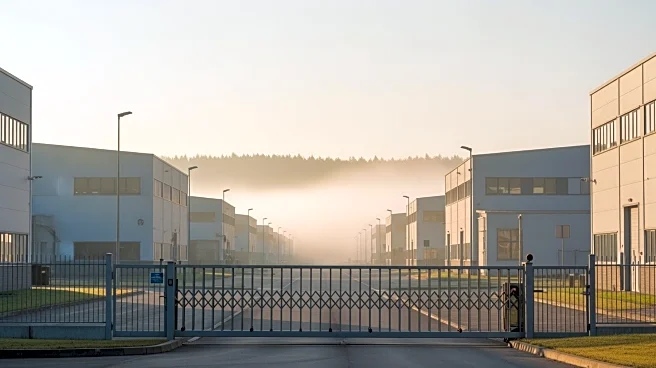What's Happening?
Lake Bosumtwi, located in Ghana, is the country's only natural lake and has a unique geological history. According to scientific analysis, the lake was formed over a million years ago when an asteroid struck the African rainforest, creating a complex impact crater. This event released a massive shockwave, flattening forests and dispersing vaporized rock and debris. The crater's formation has led to significant geological features, including a raised, lobed pattern around the crater, which is rare on Earth but common on Mars. The impact also fractured the crust, allowing hot fluids to circulate and concentrate gold and other minerals near the surface, making the area a target for small-scale gold mining. Recent satellite images show an expansion of mining activities and farmland around the lake, with a notable increase in artisanal mining.
Why It's Important?
The study of Lake Bosumtwi's impact crater provides valuable insights into planetary geology, particularly in understanding similar features on Mars. The economic implications are significant, as the crater's formation has made the surrounding area rich in minerals, particularly gold, which has led to increased mining activities. This expansion poses environmental challenges, including deforestation and mercury contamination from artisanal mining. The juxtaposition of ancient geological features with modern anthropogenic changes highlights the need for sustainable development practices. The NASA-funded app tracking mining expansion aids in distinguishing between artisanal and industrial-scale operations, which is crucial for managing environmental impacts.
What's Next?
Continued monitoring of Lake Bosumtwi and its surroundings is essential to balance economic development with environmental conservation. The use of satellite imagery and remote sensing technology will play a critical role in tracking changes and informing policy decisions. Efforts to regulate mining activities and mitigate environmental damage are likely to be a focus for local authorities and international organizations. The insights gained from studying Bosumtwi's geology may also contribute to broader planetary science research, particularly in understanding Mars' hydrological history.
Beyond the Headlines
The cultural significance of Lake Bosumtwi to the Asante people, who consider its waters sacred, adds an ethical dimension to the discussion of its economic exploitation. Balancing cultural heritage with economic interests is a challenge that requires careful consideration. The lake's unique geological features also offer opportunities for scientific research and education, potentially attracting international collaboration and investment in sustainable tourism.











